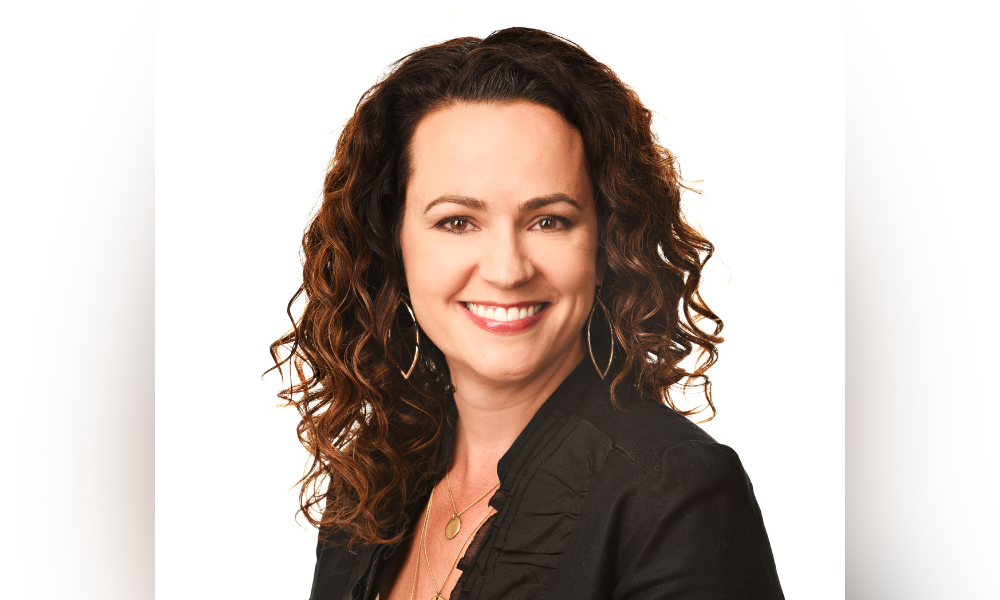Industry veteran urges first-time homeowners to consider traditional 30-year notes

With interest rates rising in light of inflation, some would-be homeowners are eyeing 15-year mortgages in lieu of the traditional 30-year variety to build equity quicker. But one industry veteran urges caution against the option unless one is financially prepared to take that step.
“It’s kind of like anything else when it comes to mortgages,” said Rebecca Richardson (pictured), mortgage loan originator for UMortgage. “It’s a balance of what’s available and the priority of somebody’s goals. In my mind, so much of it is education of what’s out there. It’s great to have a 15-year loan, good to pay it off early. Don’t pay the banks all that interest!”
Yet in choosing a 15-year note, homeowners – especially first-time ones – should consider other financial requirements: “If you’re a first-time homebuyer, you’re in uncharted waters,” Richardson said. “I try to educate for flexibility because you can still have a 30-year loan, making extra principal. But if you have a job loss, or maybe you want to qualify for an investment property, you’ll qualify for a 30-year. But if you have a 15-year payment, that reduces some of your borrowing power.”
Richardson suggested she is all about advising people on taking on either a 15-year or a 30-year mortgage, but at the end of the day it depends on what their needs are: “It’s just more advocating for understanding your options and not just looking at the rate, basically,” she said. “Look beyond the rate to understand the way your mortgage fits into a larger financial picture.”
She noted the difference in monthly mortgage payments depending on the loan term is significant between the two options: “Off the top of my head – and it really depends on what the interest rate is – it’s a 30% to 40% increase in payment,” she said.
A shorter-term loan would also require a larger down payment, she noted. “Some would say bigger is better,” she said. “But when it comes to your down payment, is putting down a large down payment the best way to buy a home?”
Pros and cons of a 15-year mortgage
She listed the pros on cons of placing a larger down payment on a home:
Pros
- You lower your monthly payment, freeing up extra cash flow.
- Potential to pay your home off sooner.
- Some sellers like to see a buyer put a lot down.
Cons
- You could earn more over time by investing some of that money compared to what you save in interest paid on the mortgage.
- If you want to make improvements to the home, you’ll either need to use other savings or get a more expensive renovation loan.
- Less money set aside for an emergency fund.
Self-described as the “mortgage mentor,” Richardson recently created a podcast advising would-be homeowners of the pros and cons of choosing a shorter-term mortgage note.
At day’s end, it’s up to the homeowner
“You probably think that having a large down payment is the best way of buying a home,” she said. “For plenty of people, it’s not. Who am I to say this? I’m Rebecca, the mortgage mentor. I keep it real, close your deal, and that’s why you follow me.”
She explains: “Let’s start with the benefit of putting down as much as possible. You lower your monthly payment, freeing up extra cash flow. There’s the potential of paying off your home sooner. And some sellers like to see that a buyer is putting a lot down.”
At the end of the day, it’s up to the investor: “Personal finance is personal, and what works for one person might not work for another,” she said. “But what’s your preference?”
In a previous interview, Charlotte, NC-based Richardson described her penchant for helping clients make the best decisions: “Most people only think about home financing a few times during their lives,” she wrote. “I think about it every single day. It’s your home and your future. It’s my profession and passion.”
She noted how she achieved her work ethic: “I actually started originating right after college,” she told MPA. “I had worked for a financial planner and got bitten by that bug.”
The financial planning world made for an easy segue into the mortgage field after prompting from a real estate broker connection. Entering into the unknown, she had a powerful ally: “Though I didn’t really know what I was getting into, my dad was a real estate attorney, so I definitely grilled him with questions,” she said.



